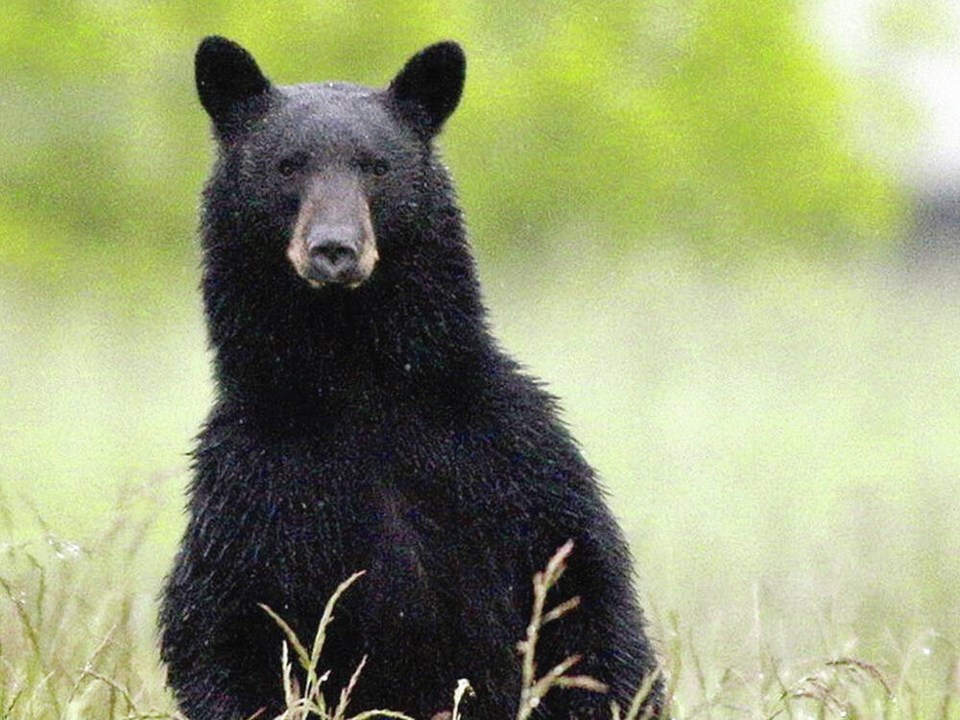A provincial court judge who sent a Tofino wildlife guide to jail for killing a mother bear and her cub questioned whether fines are enough to deter illegal hunting.
Fines seem to be a common approach to the killing of wildlife or breach of wildlife regulations, but paying money may not always be a deterrent, Judge Alexander Wolf said at the Nov. 6 sentencing hearing for Ryan Owen Millar.
A person with money might look at the financial consequences of breaking the law and decide the illegal act is worth the risk, said Wolf, according to the judgment, which was posted online this week. “One might say: ‘Well it’s probably only a few thousand dollars fine if I get caught.’ ”
Wildlife offences are easy to commit and hard to detect, and if the courts are to support the principle that they must preserve and conserve Canada’s wildlife habitat, “sometimes a fine is not enough,” he said.
Millar found that out the hard way.
Convicted of killing a bear not within an open season and killing a black bear under two years old, he was sentenced to 30 days in jail on each count — to be served concurrently — and ordered to pay fines of $5,500 for each bear.
“In British Columbia, hunting is a privilege. Only responsible, trustworthy and law-abiding citizens should be allowed to enjoy this privilege,” said the judge, who prohibited Millar from hunting and possessing weapons or firearms for 20 years.
While Millar told the court he was “under the impression that these are not criminal matters being that I didn’t use a firearm,” adding: “It seems like I have never seen anyone get jail for stuff like this,” the judge noted that a $100,000 fine and up to one year in jail are both potential penalties for the offences.
On Oct. 14, 2021, the 34-year-old wildlife guide went into his house, retrieved a bow and arrows as well as a crossbow, and killed the mother bear and her cub in a tree near his house.
He struck the cub with an arrow, injuring it and causing it to fall from the tree. He then shot a number of arrows at the sow, injuring it. The bear tried to escape but he chased it and killed it. Then he killed the cub and hid it on his property.
Millar was unaware that two people were in a hot tub at the Airbnb next door and saw everything. They called police.
When an RCMP officer arrived, Millar lied and said he knew nothing about any bears being shot. Police returned a second time and Millar admitted he had killed one bear, but said it had acted aggressively towards him. “Another lie,” said the judge.
When the officer left, a man driving a white pickup came to Millar’s house and loaded it up with the dead cub and some arrows.
Millar also lied to conservation officers, said the judge.
Wolf noted that Millar did not plead guilty and did not show remorse. He was only convicted after a “costly trial.”
A presentence report revealed that Millar was raised in South Africa. His father was a conservation officer, so Millar spent a lot of his childhood in various parks. His mother said Millar has “always been passionate and concerned about the environment.”
When the family moved to Canada, his father became a fisheries officer. Millar told the writer of the presentence report that he had been a wildlife guide his entire life, sharing nature with people. “I’m a professional and introducing people to wildlife in positive interactions has been my passion, my family’s passion,” he told the report writer.
Wolf found it aggravating that Millar killed a mother bear who could have had more cubs, and that the killings were unprovoked, since the bears were not being aggressive and Millar made no attempt to scare the animals away. “He simply executed them,” said the judge.
It’s also aggravating that Millar took steps to avoid detection, hiding the cub’s body until he could remove it from the scene, the judge said. Then he asked the conservation officer for the fur “because it would make a good story to tell.” He also asked for the meat, saying it would be a shame for it to go to waste.
The judge noted that both bears were in considerable pain before they died, concluding: “I do not think a fine properly admonishes [Millar’s] utter disregard for the law.”
The judgment notes that Tofino prides itself on its abundant wildlife, and offers tours to see whales and black bears in the area, which is part of the UNESCO Clayoquot Sound Biosphere Region.
A report prepared for the court by Shelley Marshall, senior wildlife biologist with the Ministry of Forests, said the Commercial Bear Viewing Association of B.C. generates more than $20 million annually in direct revenue and employment.
In a letter to the court, Yuri Zharikov, monitoring ecologist for Pacific Rim National Park, estimated there were 98 bears in Pacific Rim National Park in 2021.
“Considering that vitality and stability of large mammal populations depends on the number of reproducing females, such populations are more sensitive to the loss of females,” Zharikov wrote.




